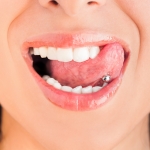What Is An Impacted Tooth?
An impacted tooth is a tooth that has not managed to break through the gum, or has partially broke through, but becomes stuck and is unable to fully come through. For the most part, impacted teeth do not cause any symptoms are are usually discovered by your dentist during a normal oral exam that includes an x-ray.
Symptoms:
As mentioned, symptoms are not frequently experienced, but for the individuals that do have symptoms, they can be any of the following:
- Bleeding gums
- Halitosis
- Pain when biting or chewing
Causes:
The most common reason for an impacted tooth to occur is when there is not enough space for the tooth to come through. Wisdom teeth are the most common teeth to become impacted, usually in people who have smaller jaws. In this case, the wisdom teeth are often extracted rather than encouraged to come through. The upper canines are the second most common to become impacted, but as these teeth are much are useful, your dentist will go through treatment options to make sure that these teeth are able to break through the gum and be useable.
Treatment:
Depending on the tooth that is impacted, your dentist will recommend the following options:
Waiting:
This is for individuals who are experiencing no symptoms. Because the tooth is not causing any pain, there is no need for drastic measures. By checking in every 6 months, your dentist can monitor the situations and change tactics at any time if the tooth shows no sign of improvement.
Surgery:
For those that experience pain, surgery may be recommended in order to alleviate it. This method is especially common for wisdom teeth, but may be recommended in other cases where surgery is the only option, or if the impacted tooth is negatively affecting the surrounding teeth. Surgery is done at an oral surgeon’s office, so there’s no need for a hospital stay and you can go home the very same day.
If you suspect that you have an impacted tooth, contact your dentist for a consultation.



